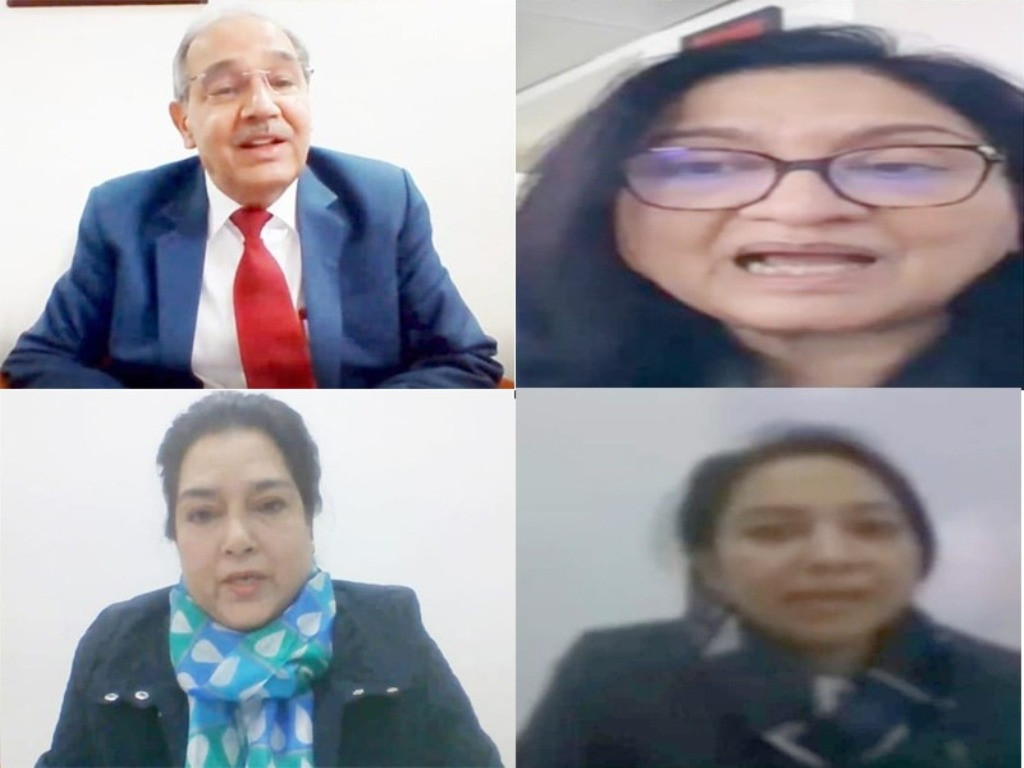JNMC observes IVF Day
Aligarh: In 2017, a couple reached the Assisted Reproductive Technique (ART) Centre, Department of Obstetrics and Gynaecology, Jawaharlal Nehru Medical College, Aligarh Muslim University (AMU) after failing to conceive a child for years. They decided to undergo a procedure that showed promise for infertile couples: In Vitro Fertilisation (IVF).
In the process, a mature egg from one of the mother’s ovaries was fused with father’s sperm to create a zygote, which would turn into an embryo and a full-grown human someday, provided everything went to plan. Few days after the procedure, the embryo was implanted into the mother’s uterus. A healthy child was born on January 28, 2018 and since then, the day is observed as the ‘IVF Day’ by the ART Centre to mark the birth of the first test-tube baby at JNMC.
During this year’s online JNMC IVF Day observations, AMU Vice Chancellor, Professor Tariq Mansoor pointed out that the birth of first IVF baby at JNMC remains one of the biggest landmarks in the field of infertility treatment done at the ART Centre, Department of Obstetrics and Gynaecology.
Speaking as the Chief Guest, Prof Mansoor said, “It is heartening to see that since the birth of the first IVF baby, the scientifically advanced infertility treatment at JNMC is making it possible to treat a number of couples with infertility, provided they come and seek help in time.”
“The doctors at the ART Centre keep pace with the rapidly evolving field and newer techniques to provide deeper insights into the causes of infertility and to treat these causes more effectively,” said Prof Mansoor.
“Over these years, more childless couples have reached JNMC with the hope of conceiving via in vitro fertilisation and other ‘Assisted Reproductive Techniques’,” added Prof Mansoor.
Delineating ‘Ovulation Induction’, the Guest-of-Honour, Prof Jaideep Malhotra said that it is a fertility treatment that involves taking oral or injectable medication to stimulate regular ovulation.
“For women suffering from failed ovulation, fertility inducing drugs are given to boost the development of eggs. Doing this improves the chances of pregnancy. The medication is usually taken at the beginning of the menstrual cycle and the body’s response is monitored through the cycle using ultrasound,” added Prof Jaideep.
Discussing ‘Colour Doppler and Transvaginal Ultrasound in Infertility’, Prof Narendra Malhotra emphasised that ultrasonographic parameters and Doppler analysis of uterine blood flow can be of value in the prediction of endometrial receptivity in infertile female patients undergoing embryo transfer.
Prof Nishat Akhtar, Chairperson, Department of Obstetrics and Gynaecology and Organizing Chairperson of the event gave an overview of infertility, IVF and Assisted Reproductive Technique.
Tracing the advancements in IVF since the birth of Louis Brown in 1978 in UK, the world’s first IVF baby to the first Indian IVF baby, Harsha Chawda in 1986 and to the first IVF baby born at JNMC in 2018; she elaborated the possibilities that have opened up due to ART, giving hopes to childless couples longing for parenthood.
Prof Shaheen (Organizing secretary of the programme) gave a video representation on the birth of IVF babies at JNMC.
Prof Rakesh Bhargava (Dean, Faculty of Medicine) and Prof Shahid Ali Siddiqui (Principal, JNMC) also attended the observations.
Dr Nazia Ishrat conducted the programme, while Dr Deeba Khanam extended the vote of thanks.

